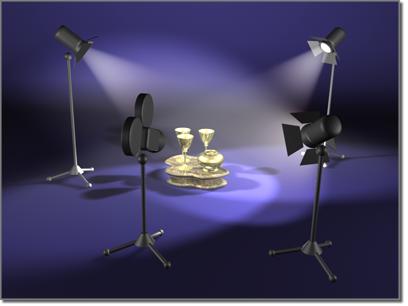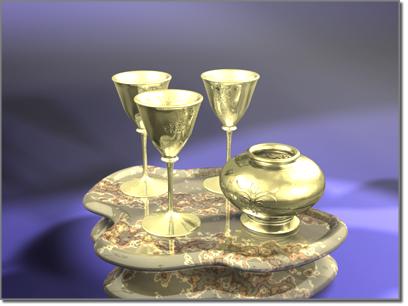

Lights and cameras placed to compose a scene

The resulting scene
You place lights and cameras to complete your scene in much the same way lights and cameras are placed on a movie set prior to filming.
Default lighting evenly illuminates the entire scene. Such lighting is useful while modeling, but it is not very artistic or realistic.
You create and place lights from the Light category of the Create panel when you are ready to take control of your scene lighting.
The program includes the following light types: omni, spot, and directional lights. You can set a light to any color and even animate the color to simulate dimming or color-shifting lights. All of these lights can cast shadows and project maps.
When you place lights in a scene, the default lighting turns off and the scene is illuminated by the lights you create. The illumination you see in a viewport is just an approximation of the true lighting. Import your scene back into your game to see the actual effect.
You create and place cameras from the Camera category of the Create panel. Cameras define viewpoints, and cameras can be animated to produce cinematic effects such as dollies and truck shots